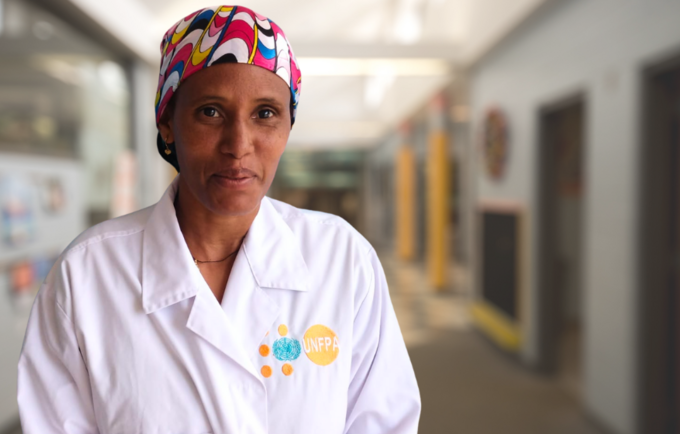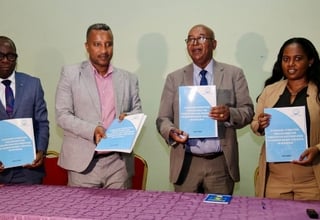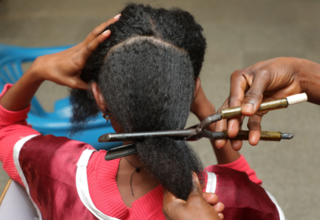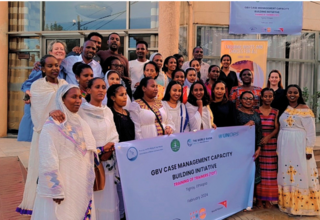Adigrat, Tigray Region | Sister Kahsa Hagos, 29, was a coordinator for the Maternity and Child Care Unit at Adigrat Hospital when the northern conflict erupted in November 2020.
"Before the conflict, we occasionally cared for gender-based violence survivors, but it was infrequent – maybe one case a month, ten in a year at most. We had limited training and cases were mainly referred to us by police officers," Kahsa recalled.
However, as the conflict escalated, incidents of sexual violence surged, overwhelming the capacity of the maternity ward. Kahsa witnessed a dramatic increase in cases, with survivors arriving with severe mental and physical trauma that required professional GBV case management. The stories recounted were horrifying, involving gang rape, body mutilation, foreign object insertion, sexual slavery, and torture. A shattered justice system also meant that most survivors were no longer coming to seek justice but rather seeking emergency medical services.
Kahsa was among the first to undergo Sexual & Gender-Based Violence training delivered by the Women’s Association of Tigray with support from UNFPA in 2021. She also realized that keeping survivors at the hospital was no longer attainable. “As more stories came out through media outlets, the raids and harassment of health workers became more frequent,” Kahsa knew survivors needed a safe space. So she spearheaded the establishment of a waiting home, with support from the Bureau of Women's Affairs and the Women's Association of Tigray, supplemented by her salary for essentials like cookware and transportation.
The waiting home was a house under construction arranged to provide shelter and basic services for survivors with stays of up to three months. To safeguard residents, Kahsa kept its location confidential and continued to mobilize resources from NGOs, religious institutions, individuals, and academic partners who helped sustain the waiting home for almost two years, providing refuge for numerous GBV survivors.
Despite her tireless efforts, however, the waiting home constantly faced resource shortages, leaving survivors without adequate food and supplies. “Sometimes, we wouldn’t be able to pay rent for months, but we kept going. And after June of 2021, I was also no longer receiving a salary from my job at the hospital, this continued to be the case until 2023 .”
To address the growing needs of GBV survivors, the Response-Recovery-Resilience for Conflict-Affected Communities in Ethiopia (3R4CACE) project, funded by the World Bank via the Ministry of Women and Social Affairs and UNOPS, the Women's Association of Tigray, in partnership with UNFPA, was able to establish a safe-house in Adigrat; finally reliving Kahsa and her colleagues from their tireless voluntary work and providing life-saving services to numerous survivors.
Building on the previous services at the waiting home, the Women's Association of Tigray hired dedicated professionals and acquired essential equipment with funding from the project. In April 2023, they transformed the waiting home into a safe house and started to provide comprehensive care including GBV, MHPSS, and SRH services, as well as securing sustained and comprehensive support for GBV survivors. This became the second safe house in the region, with the first established in Mekelle in 2019 with the support of UNFPA and funding from Canada.
"The Safe-House wouldn't have been possible without Kahsa's tireless efforts," remarks Letay Tesfay, GBV Project Coordinator for the Women’s Association of Tigray. "Her courage and dedication allowed her to save the lives of numerous GBV survivors. Not only that, but the availability of the waiting homes also encouraged many to come forward, disclose, and seek specialized services and support at the One-Stop Centers".
Under the project, support is also provided to 7 One-Stop Centers across the region including the deployment of medical professionals, provision of medical supplies and equipment, and upgrade of the Abi Adi and Mekelle One-Stop centers. Additionally, a safe and confidential referral system is in place, offering financial assistance for transportation, thus facilitating survivors’ timely access to specialized care.
Beyond supporting service provision, the project also places a strong emphasis on community mobilization and awareness-raising initiatives aimed at challenging negative social norms and stigma for preventing GBV. This knowledge enables communities to prevent victim blaming, stigma, and ostracization and to empower survivors to seek timely support, aiming to break the perpetuating cycle.
Kahsa has since started working with Maedot Aid, a local NGO supported through this project as the coordinator for Adigrat One Stop Center, and remains unwavering in her dedication to serving GBV survivors. "I aspire to witness survivors achieve justice, and accountability. I am committed to dedicating my life to their service".




